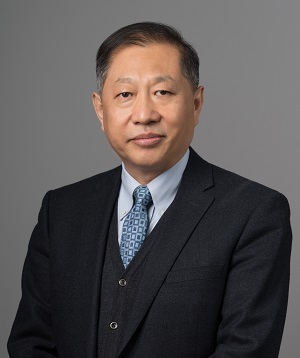2021-08-13
来源:《Social Science & Medicine》 Volume 285, September 2021

胡宏伟|中国人民大学公共管理学院副教授

梁海伦|中国人民大学公共管理学院讲师

王虎峰|中国人民大学公共管理学院教授
胡宏伟、梁海伦、王虎峰三位老师合作,近期在《Social Science & Medicine》杂志上发表了论文《Longitudinal study of the earliest pilot of tiered healthcare system reforms in China: Will the new type of chronic disease management be effective?》。
王虎峰老师是研究的通讯作者,负责研究设计和组织工作
Highlights
•First study to assess impact of a tiered healthcare model in China with large sample.
•Improved patient outcomes and reduced costs associated with the tiered system.
•Multidisciplinary team-based care is effective for chronic disease management.
Abstract
Background
In 2016, the tiered healthcare model featuring “specialists + general practitioners + health managers” in Xiamen was recognized by the Medical Reform Office of State Council and was promoted as a model to replace hospital-centric care with community-based care. This study evaluated the impact of the Xiamen " s tiered healthcare system reform on health outcomes and healthcare spending among chronic disease patients.
Methods
Data were derived from Xiamen " s electronic health record (EHR) and medical claims systems. The sample included 154,651 individuals with hypertension and 50,722 individuals with diabetes from Xiamen between 2012 and 2016. The dependent variables included rates of disease under control and total treatment costs. Patients were grouped by the types of chronic disease management: precision management, regular management, or without management. Kaplan-Meier, Cox survival analysis and PSM + DID method (Propensity score matching and difference-in-difference method) were used to compare the management outcomes by group.
Findings
The precision management group showed better clinical quality performance than the regular management group. Under-control disease rates in the precision management group showed a continuous improvement trend, while the regular management group showed a ceiling effect after ten months. Under-control rates in the precision management group increased over 40% for hypertension and over 30% for diabetes, higher than that increases found in the regular management group. Reform was also associated with consistent reductions in annual per capita total treatment costs across groups. The cost-savings in the precision management group between 2014 and 2016 was 381 Chinese yuan (CNY) for hypertension and 1117 CNY for diabetes, compared with the group without management.
Interpretation
The results in this study demonstrated the associations between tiered healthcare system reform and better clinical quality performance and improved treatment cost-saving. Developing methods to promote the policy and increase implementation are also important aspects of healthcare reform.
Keywords
Tiered healthcare system;Integrated care model;Chronic disease;China
点击此处查看原文
